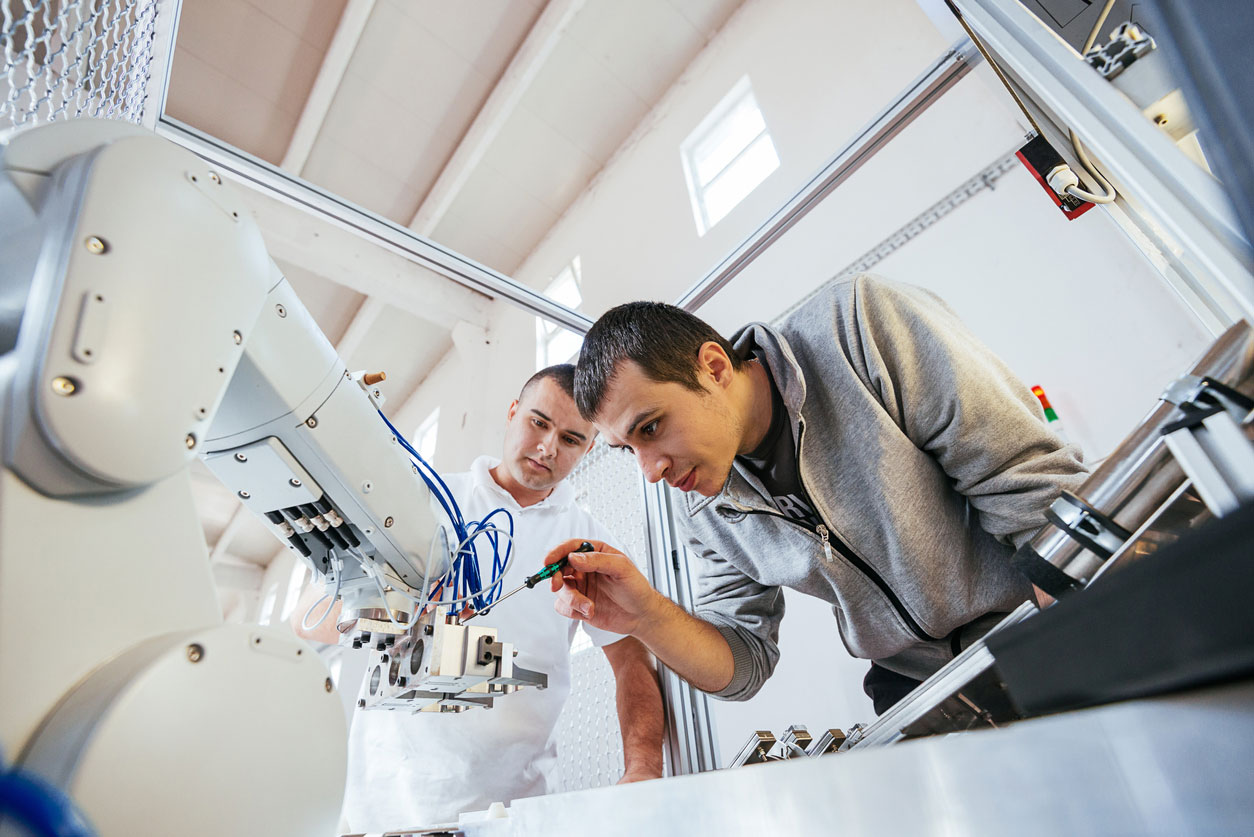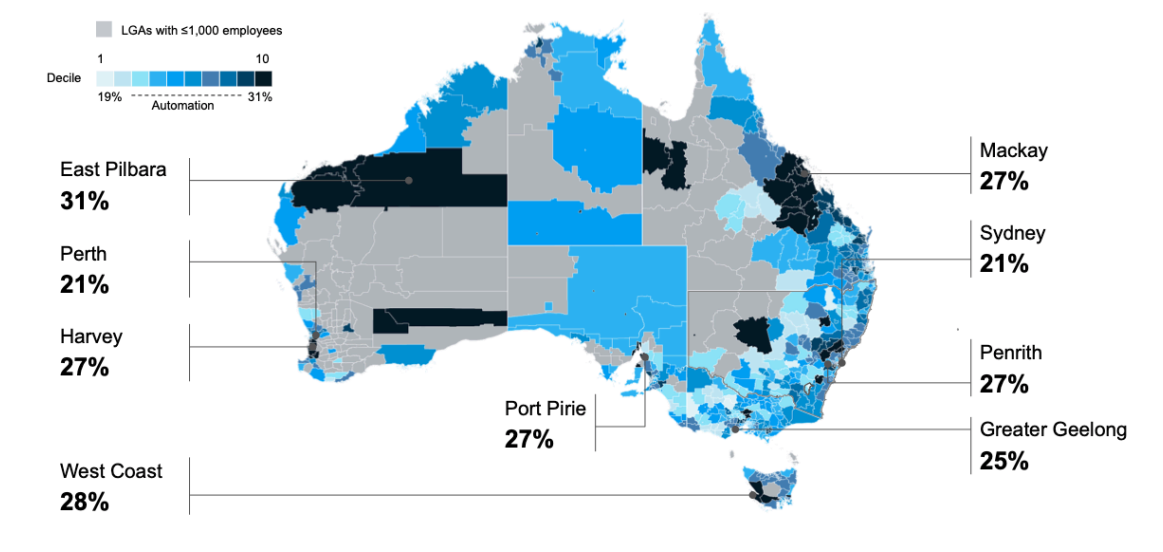Digital Revolution: Up to 46 pc of Australian Jobs at Risk
Up to 46 per cent of jobs around Australia are at risk as automation technologies look set to disrupt workforces across the country, spiking unemployment and potentially boosting the economy.
A new report from McKinsey has warned that up to 14 per cent of the global workforce and potentially 46 per cent of current work activities in Australia could be automated by 2030, streamlining industries and displacing workers.
“We estimate that 3.5 million to 6.5 million full-time equivalent positions could be affected, with 1.8 million to 5.0 million workers needing to change professions,” the report says.
McKinsey has described the impact of automation and digital disruption technologies as “the next wave of the industrial revolution” helping Australia transition further into a service-based economy.
The report also touched on the workforce landscape with workers of the future expected to spend over 60 per cent more time using technical skills and over 40 per cent more time using social and emotional skills.
"Without retraining for vulnerable workers, especially administrative and manual workers and those in vulnerable regions, income inequality could widen by up to 30 per cent," the report says.
Demand would increase for workers in unpredictable and interactive roles including nursing, care giving and sales, but will fall for workers including radiologists, mechanics and legal research assistants.
Related: The Major Proptech Trends Impacting Commercial Real Estate in 2019: Report

Productivity boost needed to continue economy boom
Australia, which has experienced three decades of uninterrupted economic growth, will now need to explore the potential of automation in order to boost productivity to rekindle sustainable economic growth.
The results have been the envy of the world, prompting The Economist magazine to proclaim Australia the world’s “most successful rich economy” in 2018.
The nation currently boasts the highest median income and wealth in the G20, the highest human development levels, and is home to three of the world’s ten most liveable cities.
McKinsey estimates the scale-up of automation across the economy will be disruptive, “just as other technology adoptions have been disruptive in the past”, helping to drive a renaissance in productivity, income and economic growth.
“If seized, this opportunity could add $1.1 trillion to $4 trillion to the economy over the next 15 years, providing every Australian with $4,000 to $11,000 in additional income per year by 2030.”
“Achieving these benefits depends on ensuring displaced workers can get new jobs.”
"The economy will adjust, however, and new jobs will flow from the higher productivity that automation generates, as well as other trends including rising consumer incomes, greater health spending on ageing and infrastructure investment.”
Google’s 2017 report, The Automation Advantage, noted that automation could add $2.2 trillion to the Australian economy over 15 years by raising productivity and creating jobs that are safer and more satisfying, as long as there is a strong policy framework to protect vulnerable workers.
Related: Coles Spends $950m on Warehouse Revamp
Mid-point automation adoption by 2030

A national agenda for automation and inclusion
While automation could provide a major boost to Australia’s productivity and national prosperity, McKinsey highlighted a need for systematic and wide-reaching engagement that could only be supported by government resources and political mandates.
“Australia’s successful history of structural reform should help in managing this transition, but it will require collaboration across the Australian economy by governments, employers and education providers,” the report says.
The call to incentivise automation adoption in the private sector would also have the potential of jump-starting the national competition agenda, with a need for government involvement on an individual level as well as regional and sectoral planning.
















